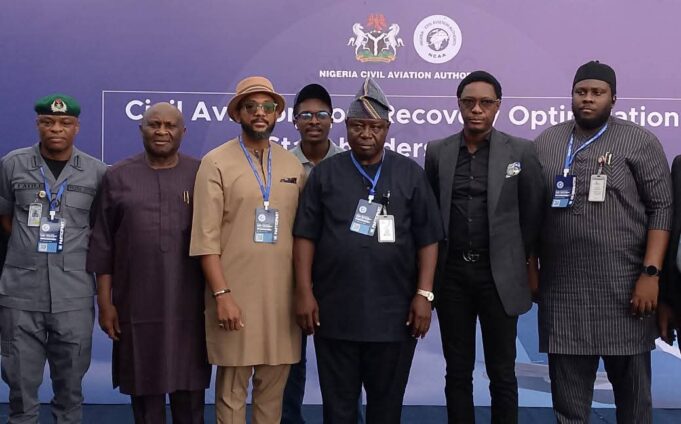The Nigeria Civil Aviation Authority (NCAA) has announced a bold Zero Debt Strategy beginning January 2026 to enforce financial regulatory obligations and address the growing problem of airline indebtedness.
The move, unveiled by the Director-General of Civil Aviation (DGCA), Captain Chris Najomo, during the 2025 Civil Aviation Cost Recovery Optimization Stakeholders’ Retreat in Lagos, aims to strengthen accountability, enforce financial regulatory obligations and ensure sustainable growth in Nigeria’s aviation sector.
Captain Najomo, represented by the Director of Operations, Licensing and Training Standards (DOLTS), Captain Donald Spiff, said the NCAA is adopting firmer enforcement measures against airlines that consistently fail to meet their financial regulatory obligations. He described the trend as a major threat to industry stability and long-term operational efficiency.
“Persistent non-compliance with financial regulatory obligations by airlines undermines the sector’s financial health and weakens the Authority’s ability to deliver efficient oversight,” he warned.

According to Najomo, the Zero Debt Strategy introduces mandatory Advance Payment Guarantees (APG) from all airlines operating in Nigeria. This initiative, he explained, will serve as a proactive tool to prevent debt accumulation and enhance transparency in the payment of statutory charges.
He emphasized that the NCAA’s action aligns with the Federal Government’s economic agenda and the strategic revenue optimization drive of the Minister of Aviation and Aerospace Development, Mr. Festus Keyamo (SAN). The DGCA noted that financial regulatory obligations are a shared responsibility that directly impacts safety, regulatory efficiency, and investor confidence in the aviation sector.
“The new financial enforcement framework is not punitive,” Najomo clarified. “It is designed to secure the industry’s future and ensure that both regulators and operators can thrive within a predictable, transparent system.”
The retreat, themed “Strengthening Collaboration for Revenue Optimization and Operational Efficiency,” brought together aviation finance experts, airline representatives, and policy regulators. Discussions focused on establishing fair cost-recovery models and ensuring that airlines fulfill their financial commitments to sustain regulatory functions.
The programme was coordinated by the Directorate of Finance and Accounts (DFA), led by Mr. Olufemi Odukoya, in collaboration with Javier Technologies Limited. Stakeholders commended the NCAA for promoting collaboration and transparency in managing aviation finances.
The Authority reaffirmed its commitment to maintaining robust financial systems that support safety oversight and operational efficiency across Nigeria’s aviation industry. With the Zero Debt Strategy taking effect in 2026, airlines will now be required to demonstrate full compliance with their financial regulatory obligations as a condition for continued operation.
























